Helga van Beuningen
Helga van Beuningen is one of the most important Dutch translators in the German language area. The list of authors who' works have been translated into German by Helga van Beuningen is long, and not only that: Helga van Beuningen translates entire oeuvres. She has translated almost all works by authors such as Cees Nooteboom, A. F. Th. van der Heijden, Marcel Möring and Margriet de Moor. Helga van Beuningen received not only the Martinus Nijhoff Prize (1992) for her translation work. In 2004 she was awarded the Else-Otten-Übersetzerprijs and in 2021 she received the prestigious Straelener Übersetzerpreis der Kunststiftung NRW.
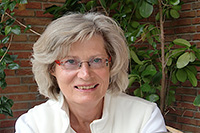
Helga van Beuningen worked as a lecturer for Dutch at the University of Heidelberg from 1965 to 1984, after which she made translating her profession. It was some time before Helga van Beuningen turned her attention towards literature from the Netherlands and Flanders. At first Helga van Beuningen translated, also from english in collaboration with Barbara Heller, exhibition catalogues, a book on architecture, a travel guide, a guide for pregnant women, a book about plants, and so on. In 1986, her first translation of Dutch-language fiction appeared with Diogenes in Zurich: Unter Professoren by Willem Frederik Hermans.
Willem Frederik Hermans
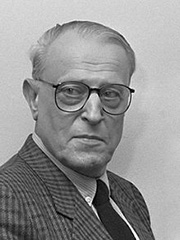
Hermans' work passed through many hands in the German-speaking world. In the early 1960s, Johannes Piron had already tried to publish a translation of Hermans work on the German market. But his attempts were not successful. "It is said" (Eickmans, 2002) that Willem Frederik Hermans refused to grant permission because of the quality of the translation.
Ultimately, it was Jürgen Hillner who introduced Hermans to the German language area. His translation Die Tränen der Akazien from 1968 was not successful. It was not until 1982 that a translation of a work by Hermans was published again, this time a translation of Nooit meer slapen under the title Nie mehr schlafen by Rosemarie Still with Wunderlich. In the Netherlands Rosemarie Still was awarded the Nijhoff Prize for her translation, in Germany, however, the book was a "failure" (Eickmans, 2002).

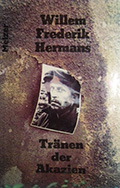
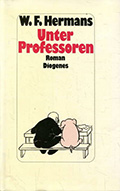
This apparently was no hindrance for Diogenes, that in the mid-1980s had already built up a considerable selection of titles of literature from the Netherlands and Flanders, to also try their luck with the great author from the Netherlands. Van Beuningen was commissioned to translate Onder professoren but the book unfortunately did not sell well. It is unclear why Diogenes instead did not publish Hermans' bestseller at that time. It is conceivable that Hermans, who was extremely sceptical about foreign publishers, did not give his permission (Van der Stere, 2007). Unfortunately, this book too, was not successful. Diogenes did not publish any further works by Hermans.

Hermans' breakthrough only came about in 2001. Waltraud Hüsmert's translation of De donkere kamer van Damokles [The Dark Room of Damocles] by Kiepenheuer was a great success. For a while it seemed as though the translation of Hermans' oeuvre would begin. Hüsmert's retranslation of Nooit meer slapen appeared in 2002, in 2003 Au Pair and in 2005 Die Tränen der Akazien (also as retranslation by Waltraud Hüsmert). After that Hermans' work permanently moved to the publishing house Aufbau in Berlin, that had been marketing Hermans' work (under licence) as paperbacks since 2003. It was there that, on the occasion of the second participation of the Netherlands and Flanders as guests of honour at the Frankfurt Book Fair (#Fairs), the revised translation by Helga van Beuningen and Barbara Heller of Onder professoren appeared in 2016. There have been no further developments since then.
A wide range of authors
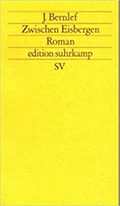
The list of authors who's works have been translated by Helga van Beuningen is long. Like no other translator, Helga van Beuningen has put modern literature from the Netherlands and Flanders on the map in the German-speaking world. She only translated a few works by some authors, such as J. Bernlef, whose Zwischen Eisbergen was published in 1993 on the occasion of the Frankfurt Book Fair. In the context of this fair, Helga van Beuningen also published her translation of Stella Klein by Hermine de Graaf, Die Mühlen der Liebe by Renate Dorrestein, in collaboration with Gregor Laschen a collection of poems, and prose by Judith Herzberg. In 2006, Helga van Beuningen's translation of Specht en Zoon [Specht and Son] by Willem Jan Otten appeard, who's work had been introduced to the German-speaking public by the Austrian publisher Residenz in the 1990s. The book was very well received:
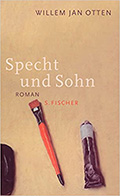
"In any case, one is not dealing with a book for quick, easy consumption. Otten's style thrives on omission, his storytelling lacks any effort to cover up the experimental arrangement on which it is based. The contact between text and reader thus becomes a fragile and always endangered framework in which the work itself eludes as much as interest in its completion continually attracts. For anyone still interested in what literature is capable of, as an experiment of language and imagination, 'Specht und Sohn' is a discovery." (Scharf, 2007)
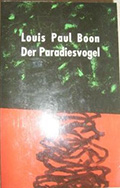
Yet Helga van Beuningen has not translated any futher work by Willem Jan Otten. Helga van Beuningen also set important accents with her translations of the works of Flemish author Louis Paul Boon (Abel Gholaerts (1990); Der Paradiesvogel (1993)). But these works too, did not get the attention they deserved
Jürgen Hillner had already presented the work of Louis Paul Boon in Germany (Eine Straße in Ter-Müren, 1970; Menuett, 1977) in the 1970s, but these translations did not lead to a breakthrough for Boon. At the end of the 1980s, Carel ter Haar also tried to market Boon's works, publishing Jan de Lichte und seine Bande (1987) and Boon's famous collection of stories Mein kleiner Krieg [My Little War] (1988) with Selinka in Ravensburg. Ultimately, Boon did not find a home base in the German language area. In 1993, Boon moved to the small publishing house Alano in Aachen with Helga van Beunigen's translation of Der Paradiesvogel. But this buisness relationship did non last either. At the beginning of the twentieth century, Boon reappeared at Luchterhand and later at Alexander in Berlin (that re-launched the translations of Menuett and Mein kleiner Krieg from the seventies and eighties).
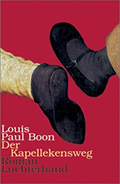
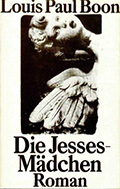
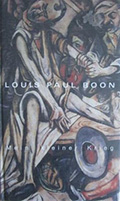
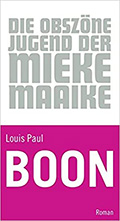
Louis Paul Boon, who is considered to be one of the most important authors from Flanders, did not succeed in conquering the German market. He also failed to do so with the publication of the translation of Mieke Maaike's obscene jeugd (Die obszöne Jugend der Mieke Maaike, 2016), a book that had enjoyed enormous success in the Dutch-speaking world in the 1970s.
“The parodistic touch and the critical undertone were lost in the atmosphere of the newly attained sexual freedom; only later did it become clear how artfully Boon had used the conventions, clichés and topoi of the pornographic genre to hold up a mirror to his readers and to the world that had morally gone to the dogs. It is now impossible to imagine Dutch-language literature without this work. It's high time that Germany also got its hands on it.” (Humbeek, 2016)
That the book was a mirror was not recognised in the German-speaking world. On the contrary: out of fear of prosecution because of a new German law regarding child pornography, the publisher took the book off the market.

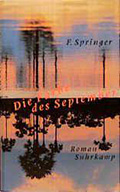
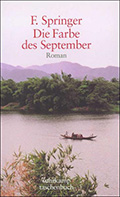
Helga van Beuningen also translated several books by F. Springer. Her first translation was Quissama. Springer's story about a Dutch businessman who falls under the spell of a fellow countryman's stories was published in the Edition Suhrkamp (Neue Folge) in 1990. The same publisher also published Die Farbe des September in 1999.
“All of F. Springer's heroes are kindred spirits of Joseph Conrad's European fortune seekers and adventurers, but they are less their brothers than their disillusioned descendants, who have internalised that adventures no longer take place in the jungle but in the brain. If they follow the dream, "nothing but the dream", as Conrad puts it, it means that they are following a memory and staging the repetition of a paradisiacal-exotic scene. Nostalgia, the backward-looking form of utopia, that is Springer's theme. And when he tells about it, when he rolls up his theme in a story, he resorts to a tried and tested method: he gives nostalgia the face and name of a woman.” (Die Farbe des September, 2022)
Pinkie turns out to be the leader of a youth gang and the object of Fergus Steyn's desire. She stands for the love that "flickers but is never lived" (Die Farbe des September, 2022).
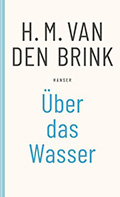
Another author that was introduced to the German language area by Helga van Beuningen is Hans Maarten van den Brink. Van den Brink's first translated work, the "vibrant" (Hartung, 2000) novella Über das Wasser [Over the Water], was published by Hanser in 2000 and was very well received:
“But it is precisely the slow account of this life by the river that develops an enthralling pull. Especially since the author's language leads through the novella with similar precision, power and ease as the rowing stroke of the two boys through the waves of the river. At the same time, the narrative sequences, in which images and leitmotifs recur continuously, fit into the dramaturgically sophisticatedly constructed arc.” (Schaber, 2000)
Other authors who had works translated into German by Helga van Beuningen include Jan Brokken, Maya Rasker and Thomas Rosenboom.
Thomas Rosenboom's Eine teure Freundschaft was published by Suhrkamp in 1991. It was the first and last translation of Rosenboom's work by Van Beuningen. Most of Rosenboom's other works were translated by Marlene Müller-Haas, the translator of among others Armando, Charlotte Mutsaers and Adriaan van Dis.
"Helga van Beuningen is not a translator of singular literary works, but of literary oeuvres" (Konst, 2021)

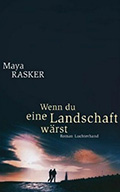
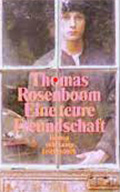
Oeuvres
Helga van Beuningen has had great successes with her translations of the work of Cees Nooteboom. Her first translation of a work by Nooteboom, Ein Lied von Schein und Sein (1989), was published by Suhrkamp. This was followed by a new translation of Nooteboom's work by Helga van Beuningen at Suhrkamp almost every year. First the fascinating love story Mokusei! (1990) and not much later the very successful translation of Het volgende verhaal (Die folgende Geschichte, 1991) (Link naar pagina gesch??)). Van Beuningen is not the only translator of Cees Nooteboom's oeuvre in the German language area, but a large proportion of his publications in the German language area (ca. 40 titles) were translated by Helga van Beuningen.
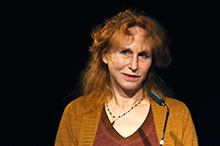
Helga van Beuningen also played an important part in the translation of Margriet de Moor's work. Margriet de Moor made her German-language debut in 1993, the year of the first participation of Flanders and the Netherlands as guests of honor at the Frankfurt Book Fair, with Erst grau dann weiß dann blau [First Grey then White then Blue], a translation by Heike Baryga. The book published by Hanser was very successful (5 editions in 1 year) and still in 1993 it was also included among the titles of Bertelsmann and the Büchergilde Gutenberg. Despite the success of the translation of Erst grau dann weiß, dann blau, Helga van Beuningen's translation of Der Virtuose appeared with Hanser in 1994.
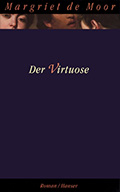
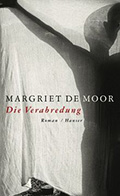
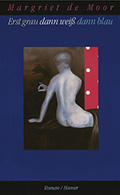
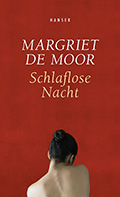
“The primary charm of her literature is revealed in the digression. Also in her new novel, "The Virtuoso", in which she tells the story of a young woman's brief affair with a castrato, she pushes the stylistic device of lascivious loss of thought so far that the eroticism of the story emerges as if by chance - uninhibited, elegant and primed with fine humour.” (Margriet de Moor: 'Der Virtuose, 1994)
The 1990s saw many more translations of Margriet de Moor's work by Helga van Beuningen: Ich träume also [So I am Dreaming] in 1996 and Herzog von Ägypten [Duke of Egypt] in 1998. After the turn of the century, they were followed by Die Verabredung [The Rendezvous] (2000), the love story Kreutzersonate (2002), Sturmflut [Storm Tide] (2006), Der Jongleur [The Juggler] (2008), Der Maler und das Mädchen [The Painter and the Girl] (2011), Mélodie d' amour [Melody of Love] (2014), Schlaflose Nacht [Sleepless Night] (2016) and Von Vögeln und Menschen [Of Birds and Humans] (2018).
Discoveries
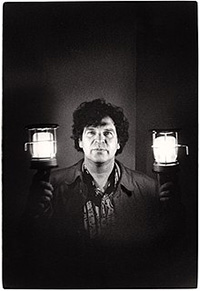
Helga van Beuningen can claim that two authors are her's: A. F. Th. van der Heijden and Marcel Möring.
The first translation of A. F. Th. van der Heyden (Ein Tag, ein Leben) was published by Suhrkamp in 1992. With the translation of van der Heijden's novels, Helga van Beuningen has definitively proven her skills as a translator:
“Van der Heijden is perhaps the greatest stylist of contemporary Dutch literature and is known for a sophisticated, pictorial style, whose metaphors sometimes continue over several paragraphs. They demand the utmost from a translator, who has to search for equivalent, but of course always slightly different, pictorial complexes in the target language. When I have a text by Van der Heijden in front of me in Helga van Beuningen's German translation, I forget that I am not reading the author's original wording.” (Konst, 2021)
At the beginning of this century, a new title from Van der Heijden's "impressive" (Lüdke, 2003) oeuvre was published almost annually by Suhrkamp.
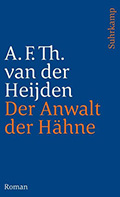
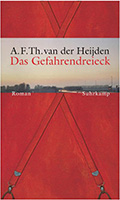
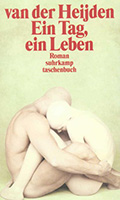

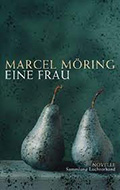
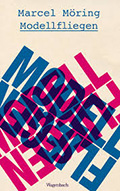
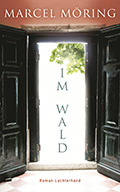
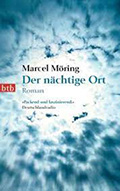
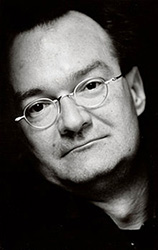
The second author Helga van Beuningen introduced to the German language area and has accompanied up to the present day is the Flemish author Marcel Möring. Möring's first work to be translated Das große Verlangen appeared with Suhrkamp in 1994 and was reprinted in 1998. In general, it was a success, but Möring's second translated work (In Babylon, 1998) was not published by Suhrkamp but by Luchterhand in Munich. This thick novel "epically broadly narrated, sad and hilarious at the same time" (Jedes Buch ein Durchbruch, 1998) got the attention it needed in Germany to be well received. In the first decades of this century new translations of Marcel Möring's work by Helga van Beuningen appeared with great regularity at Luchterhand: Modellfliegen [Model Flying] (2001), Mendel (2004), Der nächtige Ort [The Nightly Place] (2009), Eine Frau [A Woman] (2009), Im Wald [In the Forest] (2014).
Apart from one translation (Der traurige Champion [The Sad Champion], 2002), all translations of the work of the Dutch author Jan Brokken were done by Helga van Beuningen.
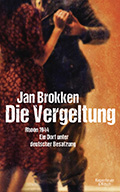
Jan Brokken's first translation in the German language area appeared in 1998 (Die blinden Passagiere [The Stowaways]). The book was reprinted, but was received rather reservedly ("Less would have been more" (Zolnay, 1998); "nothing explicitly failed" (Karlhuber, 1999)). Maybe that's why it turned quiet in Germany for a while, in connection with Brokken. Mein kleiner Wahnsinn [My Small Insanity] was only published in 2007 and after that it again took a few years before the next book by Brokken appeared in German translation. It thus always takes some time, but Helga van Beuningen continues to promote Brokken's work in the German-speaking world.
"Brokken shows us that the war is only over when people have said everything. So never." (Schümer, 2015)
New Perspectives
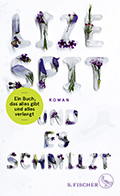

In recent years Helga van Beuningen has clearly been looking for new authors. In 2006 her translation of May Rasker's Rekwisieten [Props] appears under the title In der Nähe des Meeres [Close by the Sea] with Luchterhand and two years later Wenn du eine Landschaft wärst [If you Were a Landscape] in which Maya Rasker, according to Der Standard, "conquers the mountain man” (Ruthner, 2008).
In 2017 Helga van Beuningen presented the "stirring debut" (Perlentaucher, 2017; Glasl, 2017) by the Flemish author Lize Spit: Und es schmilzt [And it is melting]. The novel caused a great deal of controversy. It was obvious for Spit's next novel to also be published by Fischer. In 2022 Ich bin nicht da [I'm not here] appeared, a story about a young woman who has to watch, more or less powerlessly, as her lover becomes the victim of a mental illness. The book was announced to be "more nerve-wracking, more emotional und more personal" (Ich bin nicht da) than Und es schmilz.
In 2016 Helga van Beuningen also presented the first translation of a work by Niña Weijers in the German language area: Die Konsequenzen [The Consequences]. Perhaps a little "too esoteric" says Annabelle Seubert in Die Tageszeitung (Perlentaucher2), but this has not prevented Suhrkamp from bringing out a second book by Wijers in 2021, namely the translation of Kamers antikamers under the title Ich. Sie. Die Frau [Me. Her. The Woman].
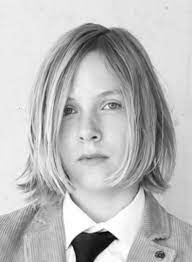
The most important discovery of Helga van Beuningen in the last decade has certainly been Marieke Lucas Rijneveld. (#Gender)
Rijneveld is considered to be one of the most important new talents in literature of the Dutch language area. Her debut novel De avond is ongemak was a huge success in the Dutch language area and has since been translated into more than 35 languages. In 2019, Helga van Beuningen's translation (Was man sät [What one Sows]) was published by Suhrkamp. Also in Germany, the book struck like a bombshell:
"an unusual, exceptional book. Gloomy, almost apocalyptic, attractive and repulsive at the same time" (Vollmer, 2020)
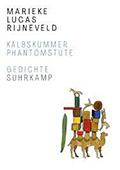
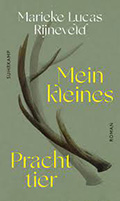
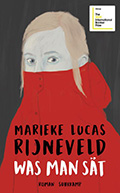
A new star was born. Meanwhile, Suhrkamp has published three works by Marieke Lukas Rijneveld: in addition to Was man sät, Mein kleines Prachttier [My Small Magnificent Animal] and an anthology of poems by Rijneveld, Kalbskummer. Phantomstute. [Calf's Grief. Phantom Mare.] (2022)
Helga van Beuningen is one of the most important translators of Dutch literature into German. Thanks to her, literature from the Netherlands and Flanders has gained a well-deserved place in the German language area.
(Herbert Van Uffelen)
References
bp: Eine Schiffsreise mit Zwischenfällen. In: Der Kleine Bund, Vol.: Jg. 149, Nr. 206 [05.09.1998] - Bern, (1998).
Die Farbe des September. In: Deutschlandfunk, Issue: 11. Aug., (2022).
Eickmans, Heinz: W.F. Hermans in Duitsland. In: Filter, Jag. 9, Nr. 1, (2002) - p. 49-52. (https://www.tijdschrift-filter.nl/jaargangen/2002/91/wf-hermans-in-duitsland-49-52/)
Glasl, Sofia: Die Beschädigten. In: Süddeutsche Zeitung, Issue: 22. Nov., (2017).
Hartung, Harald: Die Wolken des Atems beim Rudern - Van den Brinks 'Über das Wasser'. In: Frankfurter Allgemeine Zeitung - Frankfurt, (2000).
Humbeek, Kris: Nachwort. In: Boon, Louis Paul: Die obzöne Jugend der Mieke Maaike, Alexander, Berlin (2016).
Ich bin nicht da. (https://www.fischerverlage.de/buch/lize-spit-ich-bin-nicht-da-9783103971248)
Jedes Buch ein Durchbruch. In: Focus - Magazin, Vol: no. 48, Issue: 13. Nov., (1998). (https://www.focus.de/kultur/medien/jedes-buch-ein-durchbruch-kultur_id_1910461.html)
Karlhuber, Wolfgang: Scheitern auf hoher See. In: Salzburger Nachrichten, Issue: 06.03.1999 - Salzburg, (1999)
Konst, Jan: Was man sät. Und was man erntet. - Laudatio - Straelener Übersetzerpreis 2021 der Kunststiftung NRW 14. September 2021. In: EÜK:Straelen, Issue: 14. Sept., (2021). (https://www.euk-straelen.de/deutsch/straelener-uebersetzerpreis/laudatio-prof-dr-jan-konst)
Lüdke, Martin: Holland als Hölle - A. F. Th. van der Heijdens siebenbändiger Zyklus „Die zahnlose Zeit' -ein Exzess, eine Provokation, eine einzigartige Literatur. In: Die Zeit, Issue: 21. aug., (2003).
Margriet de Moor: 'Der Virtuose'. In: Die Weltwoche, Vol.: no. 44, (1994).
Perlentaucher: https://www.perlentaucher.de/buch/lize-spit/und-es-schmilzt.html (2017).
Perlentaucher2 https://www.perlentaucher.de/buch/nina-weijers/die-konsequenzen.html (2016).
Ruthner, Clemens: Geologie der großen Liebe - In ihrem Roman "Wenn Du eine Landschaft wärst" bezwingt die niederländerin Maya Rasker den Berg Mann. In: Der Standard, Issue: 8. Aug., (2008).
Schaber, Susanne: Hosenkauf & Schnapsrausch – Büchertipps. In: Falter , Vol.: Nr. 49, (2000).
Schümer, Dirk: Krieg ist nie vorbei. In: Die Welt, Issue: 7. Febr., (2015).
Schärf, Christian: Herr und Specht: Auf Dorian Grays Spuren. Willem Jan Otten macht sich ein Bild. In: Frankfurter Allgemeine Zeitung, Vol.: no. 64, Issue: 16. mar., (2007) - p. 34.
Strecker, Nicole: "Amen" von Marcel Möring. In: WDR - Kultur, Issue: 5. july, (2022).
Van der Stere, J.P.: De duistere hoeken van de donkere kamer: W.F. Hermans in French, German and English. In: Filter, Jg. 14, no.: 4, (2007) - p. 39-50. (https://www.tijdschrift-filter.nl/jaargangen/2007/144/de-duistere-hoeken-van-de-donkere-kamer-39-50/)
Vollmer, Anna: Wenn Gott nur noch grollt - Marieke Lucas Rijneveld erzählt vom Zerbrechen einer calvinistischen Familie. Gerade wurde ihr Debütroman „Was man sät“ mit dem International Booker Prize ausgezeichnet. In: Frankfurter Allgemeine, Issue: 26. aug., (2020).
